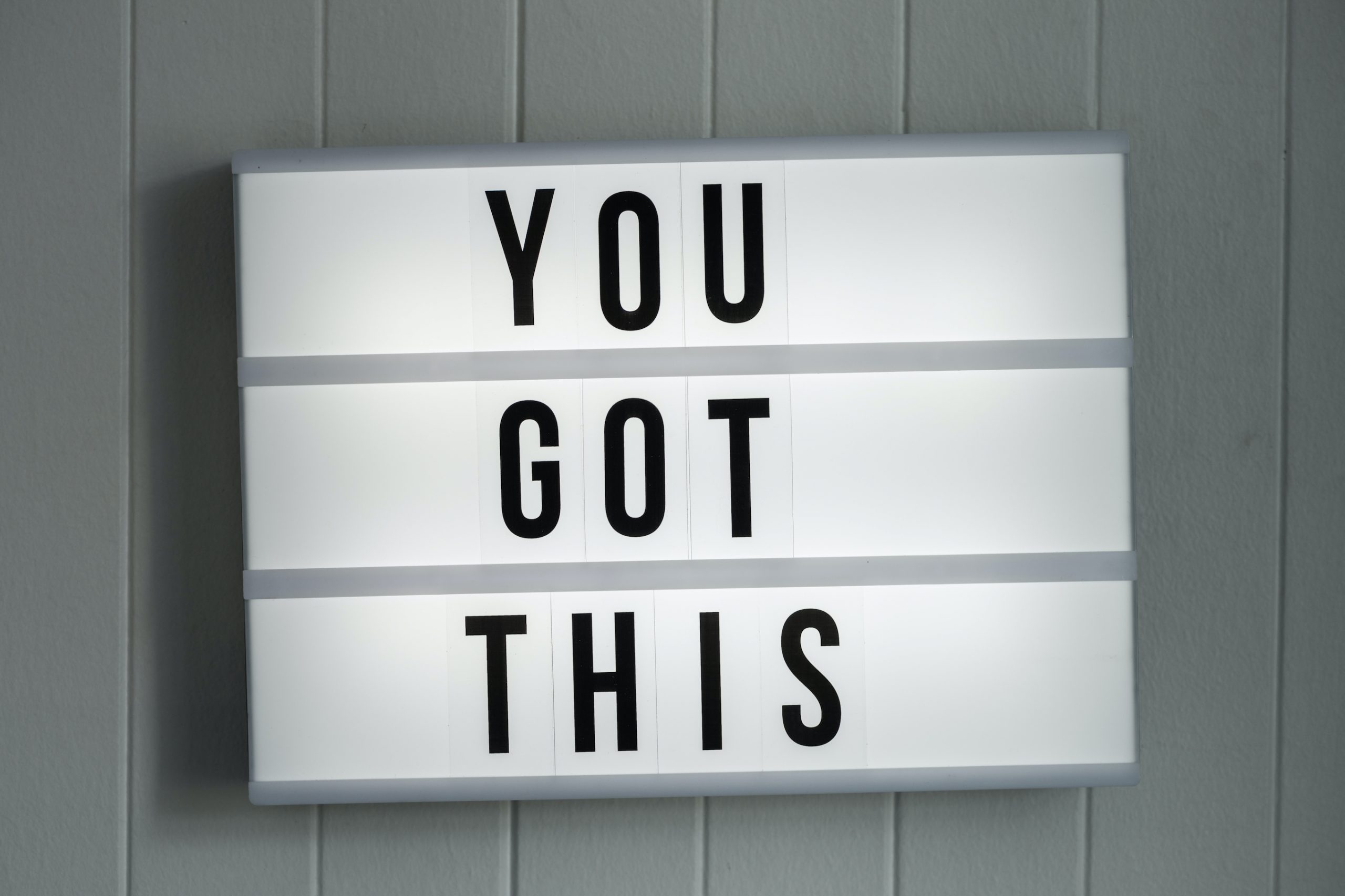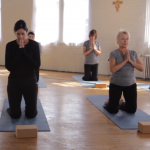We all have habits—acquired behaviors that have become second nature. Some of those habits (e.g. brushing your teeth every day, exercising regularly, praying before meals) are good for you, while others (e.g. biting your nails, smoking cigarettes, wasting time on the internet or social media) compromise your physical and mental health, waste your time and energy, and inhibit you from reaching your goals.
Habit: – an acquired mode of behavior that has become nearly or completely involuntary.1
The thing is, every habit serves a purpose—and very often, bad habits develop as a way to cope with stress, boredom, and emotions.2 But it’s possible to change your bad habits by responding to stress, boredom, and emotions in new and healthy ways.
Here are 12 ways to ditch your old habits and build new ones that will transform your life.
1. Identify the behavior you want to change. Breaking a bad habit begins with awareness. When you are able to name the undesired behavior, you have something concrete and precise to work on.
“We are what we repeatedly do. Excellence, then, is not an act, but a habit.”
— Aristotle
2. Find your “why.” Make a list of all the reasons why you want to break your bad habit. Whenever you find yourself tempted to engage in the undesired behavior, remind yourself of one of those reasons. For example:
● I want to refrain from eating dinner with the TV on because it prevents me from having meaningful conversations with my family.
● I want to stop leaving dishes in the sink after meals because it makes the kitchen look messy and it prevents me from inviting friends over.
● I want to give up checking my work email after 7:00 PM because it stresses me out and hinders me from getting a good night sleep.
● I want to refrain from eating dessert every night because the extra sugar isn’t good for my health.
● I want to stop smoking because I want to live long enough to play with my grandkids and great grandkids.
3. Replace the bad habit with a new, healthier habit. Since every habit—good or bad—has a purpose, it’s difficult to simply eliminate an undesired behavior. Instead, replace the bad habit with a new habit that provides a similar benefit.3 For example, if you wallow in self-pity when you are lonely, try calling a friend or family member instead. Or if you tend to have a glass of wine—or three—to “calm down” after a stressful day or situation, try taking a hot bath to unwind.
Once you determine the new behavior you’re going to substitute for the old behavior, focus on that new habit (e.g. phoning a friend, taking a bath) instead of what you’re giving up (e.g. wallowing, a glass of wine).
4. Eliminate triggers. If you eat dessert every night because you have cookies, ice cream, and other sweets in the house, throw them out—and don’t buy them in the first place. If you gossip only when you hang out with certain friends, either change the subject when the conversation turns to gossip, or don’t hang out with them. If you snooze your alarm because your alarm clock is next to your bed, move it to the other side of the room. The easiest way to kick a bad habit is to remove or avoid the things that cause them.4
5. Visualize yourself succeeding. See yourself getting up early and going for that sunrise walk. Envision yourself coming home and putting your shoes in the closet instead of leaving them in the middle of the hall. Hear yourself giving someone a compliment instead of bragging about your achievements.
6. Surround yourself with like-minded people. The people you spend time with have a huge influence on the way you live your life. If you want to exercise more, spend time with people who are active. If you want to grow in virtue, spend time with people who are humble, patient, faith-filled, and loving. Surround yourself with people who live the way you want to live.
7. Enlist a buddy. Pair up with a friend who is trying to ditch the same bad habit—or start the same new habit—and meet the challenge together. You can not only keep one another accountable, but also encourage each other when you’re tempted to revert back to the old behavior.
8. Return to the old you. Odds are that you haven’t had this bad habit for your entire life; there was a time when you didn’t smoke, bite your nails, or spend hours in front of the TV. You don’t need to transform into a completely new person to ditch your undesired behavior, you just need to return to being a non-smoker, a non-nail-biter, or a non-binge-watcher. You’ve lived without this bad habit before, which means you can do it again.5
9. Use “but” to overcome negative self-talk. It’s easy to beat yourself up for developing a bad habit in the first place and to get down on yourself whenever you relapse. Don’t let that negative self-talk have the last word; finish the sentence with “but . . .”:
● I slept through my alarm again, but I was up late talking with my grandson about his plans for college.
● I’ve wasted my life, but everyone loses their way at times.
● Nobody loves me because I’m overweight, but God loves me just the way that I am and sees that I’m trying to shed the extra pounds.
10. Post reminders. Leave yourself notes next to your alarm clock, in your planner, on your mirror, on your computer, on the refrigerator door, or any other prominent place to remind yourself of the new, healthier behavior or why you’re trying to overcome a certain bad habit.
 11. Pray. God can give us the strength and the courage when we need to overcome bad habits, especially when they prevent us from growing closer to Him. Whether you engage in spontaneous prayer (speaking from your heart), traditional prayers (Our Father, Hail Mary, Memorare), a novena (nine-day prayer) like the Surrender Novena, or another form of prayer, you will receive the grace necessary to make necessary changes in your life.
11. Pray. God can give us the strength and the courage when we need to overcome bad habits, especially when they prevent us from growing closer to Him. Whether you engage in spontaneous prayer (speaking from your heart), traditional prayers (Our Father, Hail Mary, Memorare), a novena (nine-day prayer) like the Surrender Novena, or another form of prayer, you will receive the grace necessary to make necessary changes in your life.
“I can do all things through Christ who strengthens me.”
— Philippians 4:13
12. Plan for failure—and be kind and patient with yourself. No one is perfect. And just like your bad habit didn’t develop overnight, it’s going to take time and effort to change your behavior. With gentleness, patience, and perseverance, you can do this! And when you do slip up, have a strategy for getting back on track.
“Have patience with all things, but, first of all with yourself.”
—St. Francis de Sales
Breaking bad habits isn’t easy. But by staying focused on your goal and incorporating some or all of these twelve tips, you can kick your bad habits once and for all!
______________________
1. https://www.merriam-webster.com/dictionary/habit
2. https://jamesclear.com/how-to-break-a-bad-habit
3. James Clear, Atomic Habits: An Easy and Proven Way to Build Good Habits and Break Bad Ones. (Penguin Random House, 2018) https://jamesclear.com/atomic-habits
4. https://jamesclear.com/how-to-break-a-bad-habit
5. Ibid
Sponsored by Pietra Fitness. www.PietraFitness.com
































